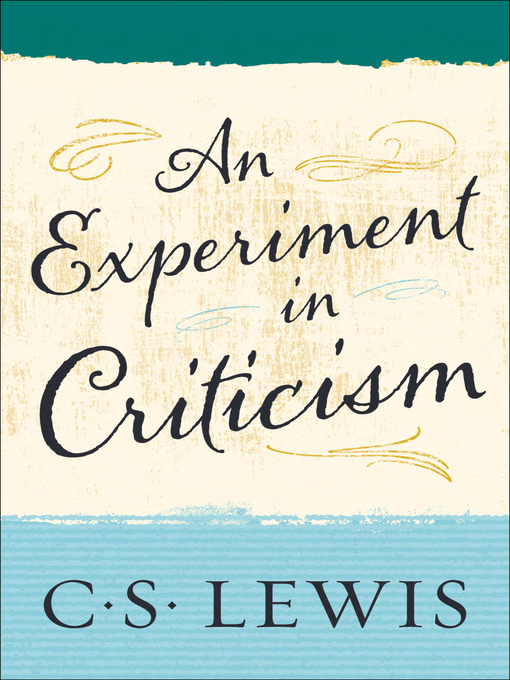Why do we read literature and how do we judge it? C. S. Lewis's classic An Experiment in Criticism springs from the conviction that literature exists for the joy of the reader and that books should be judged by the kind of reading they invite. He argues that "good reading," like moral action or religious experience, involves surrender to the work in hand and a process of entering fully into the opinions of others: "in reading great literature I become a thousand men and yet remain myself." Crucial to his notion of judging literature is a commitment to laying aside expectations and values extraneous to the work, in order to approach it with an open mind. Amid the complex welter of current critical theories, C. S. Lewis's wisdom is valuably down-to-earth, refreshing and stimulating in the questions it raises about the experience of reading.
- 20 most borrowed Adult Fiction eBooks 2024
- Available now
- New eBook additions
- Most popular
- Travel Guides
- Try something different
- Always Available eBook Classics
- Fantasy Series
- New Zealand Reads
- Life-Changing Reads
- How Have I Not Read This Yet??
- Unlimited Borrowing!
- Lonely Planet Unlimited
- See all ebooks collections
- GraphicAudio - A movie in your mind
- Top 20 Most Borrowed eAudiobook Adult Fiction
- Available now
- New audiobook additions
- Listen to the radio
- Audiobooks narrated by celebrities
- Audio Available Now!
- Fantasy Series
- New Zealand Reads
- Full Cast audiobooks
- Life-Changing Reads
- How Have I Not Read This Yet??
- Unlimited Borrowing!
- See all audiobooks collections
